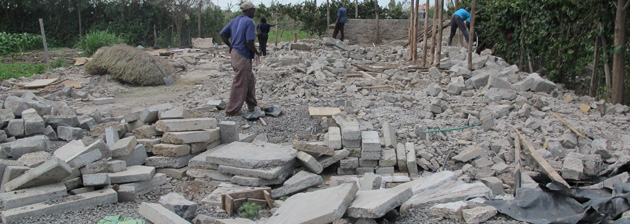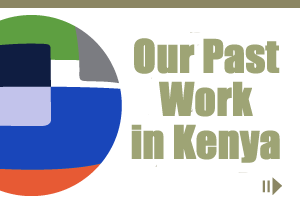By Kentis Onyach, Internews in Kenya.
“Spotting machetes at the meeting was like digging our own graves” says Tole Nyatta in reference to the contentious land issues in Mau Narok and Kijipwa in Mombasa, places where the Land and conflict sensitive journalism team of trainers from internews visited
“That was scary. Signs of what is to be expected if no solution is reached.” affirmed Nyatta the Land and Conflict Sensitive Journalism senior trainer.
Nyatta says land issues in Kenya remain contentious even with the introduction of the new land laws.
Residents of Narok disagreed on the resettlement of the Internally Displaced Persons (IDP’s) despite the laws giving Kenyans a right to settle in any part of the country. The Maasai’s who are the original occupants of the land in Mau Narok are opposed to the resettlement of Kikuyu’s on their land. They refer to them as “outsiders” saying it is their ancestral heritage.
In Kijipwa, the contention was about irregular allocation of land. Residents cited corruption in the exercise. The Mombasa Republican Council (MRC) group was up in arms against land grabbers hence their secession call. It took control of some parts of coast region. They were opposed to anyone or any group who had interest in intervening in these matters.
“Internews approached these issues through sophisticated methodology which was informed by the previous experiences in Conflict Sensitive Journalism (CSJ) and Reporting for Peace (RFP) programmes. These stories were told consistently leading to government action” explained Nyatta.
The Land & Conflict Sensitive Journalism programme (L&CSJ) aimed to address the conflicts from land which was majorly witnessed in the 2007/8 post election violence. It also aimed to mitigate further electoral and inter ethnic violence in Kenya.
An evaluation report on L&CSJ by Gordon Adam cites Internews’ big role in the aftermath of the 2007/2008 post election violence. It says Internews empowered journalists to be conflict sensitive when telling their stories.
“The L&CSJ Project must rate as one of the foremost examples of good practice in the field of media development through its ability to organize a systematic programme of workshop training…….its ability to organize roundtable meetings between journalists and topical newsmakers. This resulted in a marked improvement in conflict sensitive handling of issues and strengthened interactive links to the communities they serve.” Says the evaluators in an evaluation report of the Land and Conflict Sensitive Project 2013 led by Gordon Adam.




